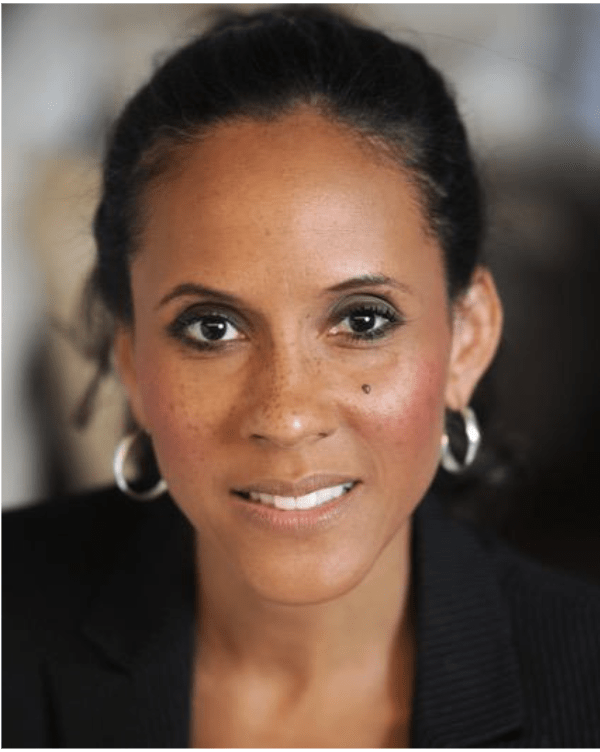In 2008, the 110th Congress passed H. Con. Res 134, with concurrent bicameral support, to commemorate July as “Bebe Moore Campbell National Minority Mental Health Awareness Month.” The Honorable Albert Wynn sponsored the resolution, which continues as a foundation and vehicle for our national advocacy movement to address the inequities in mental health care for people of color. The congressional achievement is a tribute and posthumous recognition to Bebe Moore Campbell and her work that illuminates our nation’s two-tiered mental health system.
As we grapple with infusing health equity against a divisive political landscape, mental health care remains vulnerable. The system is riddled with imperfections, united by diagnosis and treatment and less by prevention and wellness. Unfortunately, one reality is how some individuals experience the system of mental health care differently and how experiences vary based on color, language, zip code, and income.
Mental health equity is the state in which everyone has a fair and just opportunity to reach their highest level of mental health.
Source: CDC
Elizabeth “Bebe” Moore Campbell was a bestselling author and novelist, but Bebe’s most significant role was mother, daughter, nana, advocate, and friend. Her work remains a roadmap and platform for truth-seeking and hope-raising. With an unsurpassed legacy, our tribute to Bebe is to expand the definition and face of mental health through community allies and eliminating the stigma of diagnosis and treatment.
Bebe recognized that we are all flawed, and our imperfection allows us to experience greater empathy, purpose, and hope. As a pioneer, she understood the importance of culture and community firsthand, leveraging both as opportunities for wellness and healing.
Advocacy
Advocacy unites individuals with a common purpose to advance awareness and mobilize action supporting a defined outcome. Advocacy for mental health must be grounded in both education and activism. Bebe co-founded NAMI Urban Los Angeles, previously NAMI Inglewood, to build community through shared experience and intentionality. Her tireless advocacy for urban neighborhoods and people of color expanded racial representation within NAMI and diversified the face of the mental health advocacy movement.
WHAT IS MENTAL HEALTH ADVOCACY?
Mental health advocacy is what addresses the vital need to promote the rights of individuals with mental illness. It focuses on increasing access to mental health services and combating stigma and discrimination. Efforts to change policies and develop effective programs that bolster mental health happen at the local, state, and national levels. Advocacy also occurs at the individual level for patients and their families.
Source: Tulane School of Public Health
The co-founders of NAMI Urban LA proved that mothers who remain devoted to their children’s well-being are fearless. Bebe stood in the gap for others, leveraging her voice to support policies that genuinely advance equity in access, treatment, and care. She was resolute, identifying mental health education and system navigation as critical to eradicating stigma and encouraging “help-seeking behavior.”
Accessing Community Care
Accessible mental health care and education is achieved by extending outreach into the community. This commitment accelerates the priority of low-level literacy and bilingual education, essential resources for multi-ethnic stakeholders. How mental health is socialized informs a commitment to race-conscious care delivery, giving voice to the voiceless, advocating for a loved one, and caring for oneself. The opportunity to foster more equitable mental health care depends on the effectiveness of honoring culture and community as a needed political and social construct.
A few considerations to illuminate greater access to care:
- Encourage co-location of mental health and physical health services
- Amplify the need for diverse mental health providers and anti-racism training and policies
- Identify clear pathways to get help: who do you call, where do you go, and what do you do?
- Activate mental health advocacy voices in places of worship and the workforce
- Advance culturally responsive care
‘Treating’ the social determinants of mental health involves focusing more on policies than medication, therapy, and neurobiological innovation. Addressing upstream solutions inspired by advocacy influences policies and provides opportunities for structural improvements that address the disparities in mental health outcomes.”
In 72 Hour Hold, Bebe describes some of the social injustices of a convoluted mental health system with disconnected case management and instability. She grappled with the need for structural solutions. The novel details observation with insight. Asserting solutions to care that include accelerating services for patients, providers, and advocates who recognize the biological basis of mental illness and the complexities of symptom management.
While 1:5 adults live with mental illness, the data reinforce the vast disparities to receive equitable care. There is a fundamental equity differential, coupled with the 25-year decrease in life expectancy. Stigma is widely noted as a barrier to accessing mental health services, and workforce deficits exacerbate a known crisis in the community. As equity champions, erasing stigma and not Campbell’s name, is key to overcoming obstacles to care.
Preserving History
Honoring July as the “Bebe Moore Campbell National Minority Mental Health Awareness Month” is essential for sustaining the health equity and mental health movement for every month of the year. As stakeholders and equity champions, there are three essential goals:
- protect and preserve Bebe Moore Campbell’s name as conferred by Congress in H.Con.Res.134;
- honor and recognize Bebe’s historical contributions to the mental health advocacy movement without compromise and
- advocate for expanded resources and services for mental health care in communities.
The future of mental health equity requires preserving Bebe Moore Campbell’s name and her tireless contributions to the national advocacy movement. Achieving equity depends on our voice and an unwavering pursuit of mental health justice.
Ring the bells that still can ring.
Forget your perfect offering.
There is a crack in everything.
That’s how the Light gets in.
– Leonard Cohen, Anthem
